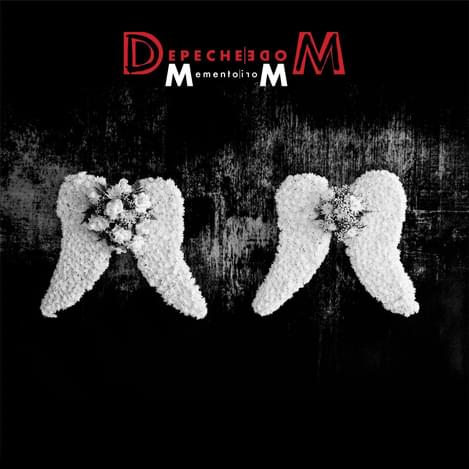Memento Mori brilliantly marks the beginning of a new era for Depeche Mode
"Memento Mori"

Death looms everywhere on Depeche Mode’s new album.
It’s no real surprise, given that it’s called Memento Mori. First conceived in the early days of the pandemic, it marks the band’s first release as a duo after the passing of founding member Andy Fletcher last year. It isn’t a memorial album, since work began long before Fletcher’s death, but there’s a palpable grief and tragedy radiating throughout. Depeche Mode – like most of us – have gone through a tumultuous couple of years, and they’ve emerged with one of their darkest, most intense records to date.
Lyrically, Memento Mori is a powerhouse. There’s a prevalent sense of morbidity from beginning to end. One that leans on clear images of death and grief, demonstrated on “Wagging Tongues”’ refrain of “Watch an angel die” or the line “You’ll be the killer / I’ll be the corpse” that kicks off “Don’t Say You Love Me”’s sparse, delicate opening. There is an extensive palette of emotions expressed on this album, but they’re all held together by this central theme of mortality.
The most exciting point of the album comes with the arrival of “Caroline’s Monkey”. By switching to a character-driven narrative, Depeche Mode are able to delve most deeply into their own vulnerabilities. Specifically, it’s about addiction, but more widely it strikes the chord of a dangerous kind of escapism and the desire for a short-term fix over a long-term solution. The chorus is simple, but it cuts deep: “Fading's better than failing / Falling's better than feeling / Folding's better than losing / Fixing's better than healing / Sometimes”. Memento Mori is too complex to reduce to a single moment, but if you had to sum up those intense emotions it would be with this song.
Its intensity isn’t just in the lyrics, but in how raw the music itself is. It takes us back to 2005’s gritty Playing The Angel - the pounding introduction to Memento Mori’s opener “My Cosmos Is Mine” is a less deafening but equally forceful way to kick off an album as what we heard on “A Pain That I’m Used To” in 2005. On “My Favourite Stranger”, this brashness is much more concentrated, giving us that same near-grating passion without overwhelming the vocals and giving you new details to focus on with every listen.
On their fifteenth album, Depeche Mode embrace the many facets of their sound without compromising on the overall consistency of the record. “Never Let Me Go” and “Ghosts Again” lure you in with intoxicating riffs, the latter coming as close to pop as is possible on this album. “Soul With Me” is heavenly in its near-orchestral synths and sparks of magic; less densely layered than previous outings but no less intricate.
Memento Mori undoubtedly marks the beginning of a new era for the band, but that doesn’t stop them from looking back on the past. If “People Are Good” is the sequel to their 1984 single “People Are People”, then it seems like Depeche Mode may have lost their faith in mankind. Once upon a time, they endeavoured to understand the hatred that exists in the world, while today they are almost resigned to it. “People are good / Keep fooling yourself” may not be the most hopeful line on the album, but it’s certainly among the most cutting.
After almost 40 years in the business, Depeche Mode are still at the top of their game and ready to explore their vulnerabilities in new and intense ways. Memento Mori is not a one-listen album; take a few rounds to wrap your head around all the little details and let your favourite song change with every listen. With this level of quality fifteen albums in, it’s no surprise that Depech Mode are still filling up stadiums across the world.
Get the Best Fit take on the week in music direct to your inbox every Friday

Nine Songs: Thea Gilmore

The encore that The Walters never saw coming

Lottie’s is on the rise

Ordering disorder with newcomers Clutter

Bon Iver
SABLE, fABLE

Mamalarky
Hex Key

Florist
Jellywish





